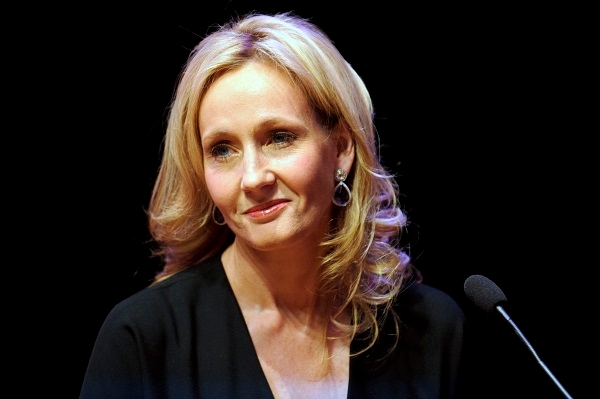Is it okay for struggling authors to talk about promotion and marketing and how they are dealt with by publishers? Apparently so.
The aspiring novelist Robert Galbraith knew rejection. His first novel, The Cuckoo’s Calling, was rejected by Orion and other publishers before it was printed in April by Sphere, a prestige imprint of Little Brown, one of the biggest names in fiction. He must have been beside himself when his little detective story was singled out for praise by Val McDermid, Mark Billingham and Alex Gray – all leading practitioners in the genre.
The icing on the cake probably came when The Times, the Mail and Publishers Weekly joined in the chorus of congratulation. Galbraith, a former army officer, had arrived with a bang. What a debut! What an achievement! Well done, that man.
But then reality dawned. Over the next three months, according to Nielsen Bookscan, the book sales rating company, The Cuckoo’s Calling sold a mere 449 copies through British retailers. (By the way, the publisher claims 1,500 hardback sales.) It was not even stocked by most bookshops. Amazon was barely aware of its existence. Readers, who might well have enjoyed its tale of a disabled war veteran turned private detective, knew nothing of it.
Galbraith no doubt began to wonder what on earth had happened. How could his novel, so beloved of the critics, have bombed in the marketplace? It was humiliating. His friends, previously supportive, didn’t know what to say. Maybe, he told himself, it was time to find a new line of work.
But then – shazzam! – like an England-Australia test match, everything changed. Suddenly, in a single morning, the book shot up from 5,076 on Amazon to number one, and not just in the UK, but in America and around the world. By the end of the day, an astonishing 507,500 sales had been recorded, with millions more in prospect.
Goodness me! Talk about fairy stories. Not even Harry Potter could have magicked up this one.
Except, of course, that he had. Or rather, she had. Because, as the world now knows, Robert Galbraith is actually J.K. Rowling, the world’s most famous and successful author, and once this truth was revealed by the Sunday Times, the scramble for copies had begun.
Even now, as I write, the printers employed by Little Brown/Sphere are turning at breakneck speed to meet the demand. Rowling, it would appear, has another mega-bestseller on her hands – proof-positive that the potions-mistress has not lost her touch.
Am I alone in finding this an unedifying story? Perhaps I am. Instead of thinking that what has happened was, at worst, deeply misleading and, at best, a stunt, most people seem to believe that this jiggery-pokery was courageous and, frankly, great fun.
I do not share this view. For many years, I have tried, and mostly failed, to have my novels published and promoted. I have frequently been told by publishers, including David Shelley, the head of Sphere, that I am an accomplished and stylish writer. I am not exaggerating when I say this. I have the emails to prove it. Yet, when they turned me down, it was nearly always on the basis that publishing was a business and that sales projections were almost the sole basis for saying yes or no to a debut writer.
The fact that the market for Robert Galbraith turned out to be fewer than 500 copies in three months alas undermined what had been a considerable promotions exercise. David Shelley – a charming man who has been turning me down with aplomb for the last 12 years – was, apparently, the only employee at Sphere who was in on the secret. The rest of the team swung into action assuming that Galbraith was a debut crime novelist. Mark Billingham, Val McDermid and Alex Gray, who are all Little Brown crime writers – the latter two published by Sphere, were engaged to write the pre-publication praise. The book was then favourably reviewed in several newspapers.
Yet the result was 449 sales in three months. This dismal performance is not uncommon for struggling or first time novelists, and publishers usually cut their losses. Robert Galbraith would probably have suffered that fate had he not been J.K. Rowling – the name with a golden touch.
Was it always intended that Rowling would be unmasked? We shall never know. I have no quarrel whatsoever with Rowling. She is a genius. In authorial terms, she has joined the immortals. More power to her, I say. My beef is with publishers who have become enslaved to celebrity and the bottom line.
In my opinion, this was a stunt — however they dress it up. Written by Robert Galbraith, The Cuckoo’s Calling was a commercial failure. Even my novels, London Eye and The [sadly named] Caravaggio Conspiracy sold more copies! But written by J.K. Rowling – the cuckoo in the nest – it was an immediate and runaway success.
Walter Ellis is the author of How NOT to Write a Bestseller – an Expert’s Guide.
UPDATE: Nicky Stonehill, the spokesperson for Little Brown and J.K. Rowling, has issued a statement denying that this was a stunt. Stonehill said: ‘We can confirm the story in the Sunday Times was correct, and it was not a leak or elaborate marketing campaign to boost sales. We are not commenting any further.’






Comments